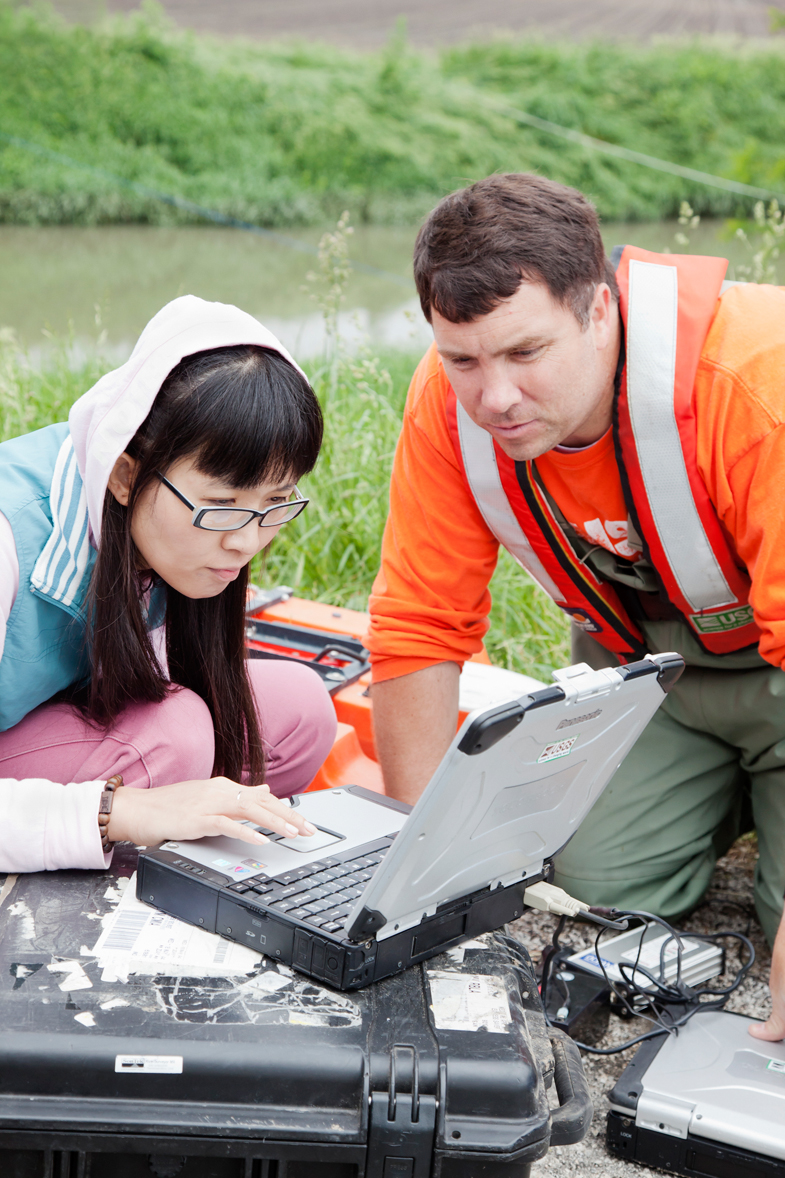Geology
Geology is the scientific study of the Earth, including how it works and its history and evolution over 4.6 billion years. Geologists study important societal problems, such as natural hazards (earthquakes, volcanoes, landslides, floods); energy, mineral, and water resources; and other environmental issues (climate change, pollution, land use). Because it encompasses physical, chemical, and biological sciences, many specializations are available.
Within Geology, there are two programs of study available, each with their own set of possible concentrations.
Designed for students who want a more flexible course of study than is provided by the Specialized Curriculum in Geology and Geophysics. It may be used by those wishing to obtain a more liberal education and/or background in geology for use in fields such as anthropology, business, mineral economics, regional planning, journalism, law, sales, or library and information science. It is not intended to prepare a student for graduate work in the geological sciences unless the student selects additional courses in mathematics, chemistry, and physics comparable to those required in the Specialized Geology and Geophysics Curriculum.
|
Geology
|
Designed for students who want a more flexible course of study than is provided by the specialized curriculum . It may be used by those wishing to obtain a more liberal education and/or a background in geology for use in fields such as anthropology, business, mineral economics, regional planning, journalism, law, sales, or library and information science. |
|
Earth and Environmental Sciences
|
Designed for students who want a flexible course of study in preparing an interdisciplinary foundation for careers in many different areas including environmental law, business administration, land-use planning, the National Park Service, the Environmental Protection Agency, journalism, and many others. It emphasizes applied aspects of earth and environmental sciences including: natural disasters, earth resources, global change, environmental health, waste disposal, landscape evaluation, and land-use planning. Environmental processes and issues, as well as their implications for public policy, are addressed on a regional to global scale. |
|
Earth Science Teaching
|
Designed for students preparing to teach earth science or general science as their major area of specialization. Students must complete the Teacher Education Minor in Secondary School Teaching (37 hours). |
For more information, visit http://catalog.illinois.edu/undergraduate/las/geology-bslas/
Designed for students who plan to pursue graduate study in geology or geophysics or who wish to work professionally in the environmental field upon obtaining the bachelor's degree. It offers more training in geology and related science than is required in the Sciences and Letters Curriculum. There are three concentrations to choose from:
|
Geology
|
Designed for students who plan to pursue graduate study in geology or who wish to work professionally in the geological field upon obtaining the bachelor's degree. |
|
Geophysics
|
Designed for students who plan to pursue graduate study in geophysics or who wish to work professionally in the geophysical field upon obtaining the bachelor's degree. |
|
Environmental Geology
|
Designed for students who plan to pursue graduate study in environmental geology or who wish to work professionally in the environmental field upon obtaining the bachelor's degree. |
For more information on the Degree Requirements, visit http://catalog.illinois.edu/undergraduate/las/geology-bs/
- GEOL 107—Physical Geology
- GEOL 100—Planet Earth
- GEOL 117—The Oceans
- GEOL 118—Natural Disasters
-
Students should consult with an academic advisor regarding course selection prior to the advanced registration period.
Geology provides a number career opportunities for graduates of the major.
- Ability to conduct/clearly explain scientific research
- Ability to make appropriate decisions and solve quantitative problems
- Ability to work with people from varied backgrounds
- Intellectual capacity to perform well in college
- Proficiency in reading, writing and memorization
- Thorough knowledge of geological principles and mathematics
- Aerial Photographer
- Agricultural Engineer
- Astronomer
- Cartographer
- Consultant
- Economic Geologist
- Environmental Consultant
- Environmental Geologist
- Forest Ranger
- Geodynamicist
- Geologist
- Geomorphologist
- Geophysical Exploration
- Geophysics Technician
- Geo-Technical Engineer
- Glacial Geologist
- Hydrogeologist
- Hydrologist
- Industrial Hygienist
- Landscape/Nursery Manager
- Materials Analyst
- Mineralogist
- National Park Service Professional
- Oceanographer
- Paleoceanographer
- Paleoclimatologist
- Paleontologist
- Petroleum Geologist
- Petrologist
- Planetary Geologist
- Prospector
- Seismologist
- Soil Scientist
- Stratigrapher
- Structural Geologist
- Surveyor
- Volcanologist
- Participating in undergraduate research
- Applying for a study abroad experience
- Utilizing resources of The Career Center
- Joining a Registered Student Organization (RSO) related to this major, such as:
- Illini Limnologists (ILLimnologists): examines the impact of water on the Champaign area as well as the state of Illinois, specifically Boneyard Creek and other freshwater studies.
There are several professional organizations dedicated to Geology. Their websites might be able to provide a glimpse in the world of Geology. These organizations include Geological Society of America, American Geosciences Institute, American Geophysical Union, Association of Environmental & Engineering Geologists, and the U.S. Geological Survey.


